This new roguelike crosses Balatro with mahjong, and even just the demo is proving a grave threat to my free time
One of the year's best games crossed with one of history's greatest? Sure, why not.
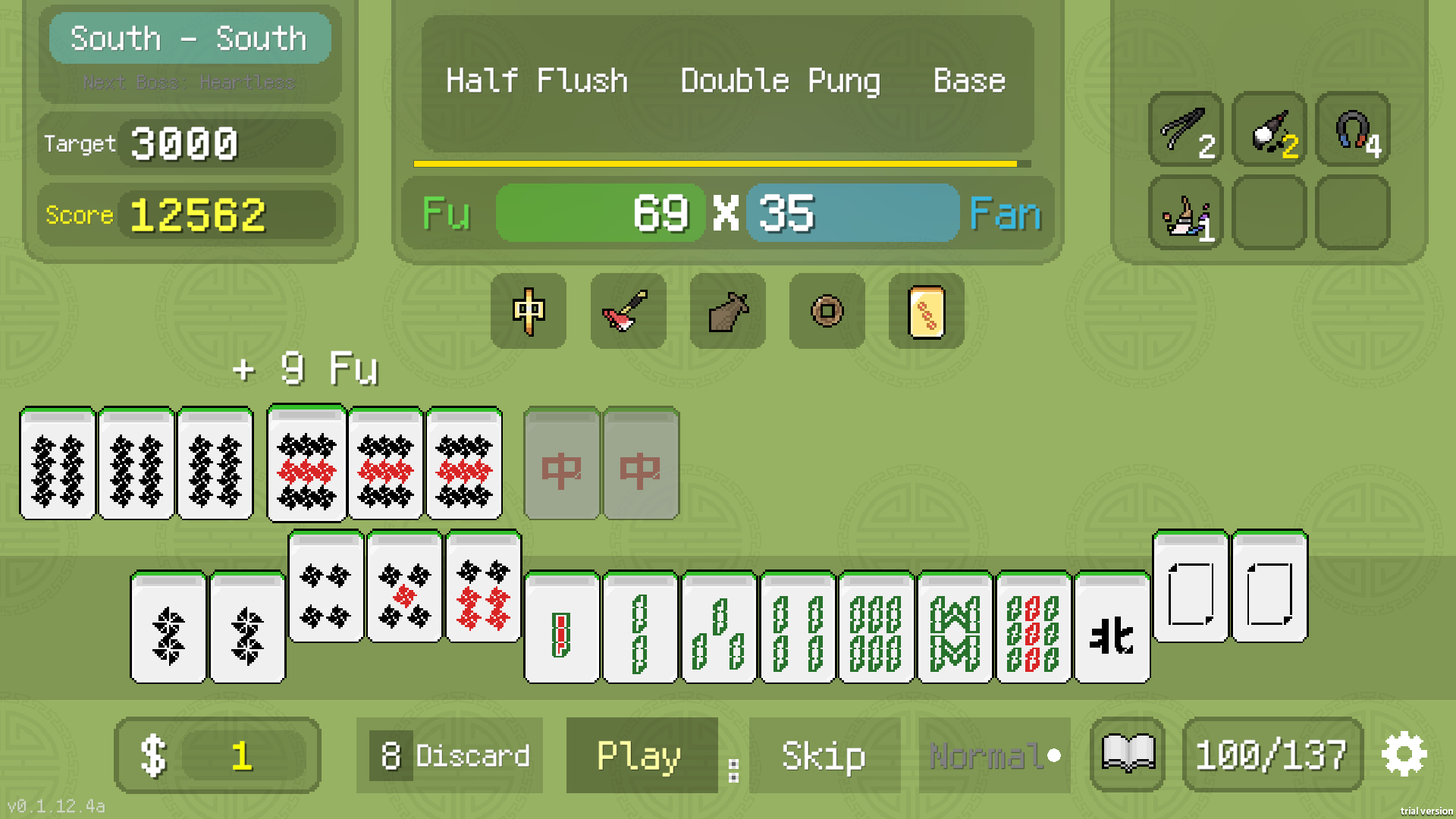
Here’s an idea for you: A single screen roguelike based on an old gambling game where you engineer impossible feats of luck to earn money that you can use to buy items and packs to rocket a point multiplier to obscene heights. Sounds like the kind of pure videogame concept that you could pick up for a few minutes, or an entire day, as if it was lab-grown to release as many endorphins as possible.
Sorry, what’s that? Balatro? No, I’m talking about Aotenjo, a mahjong take on this year's explosively popular poker roguelike.
If you’ve played Balatro, a lot of Aotenjo will be deeply familiar, but I've put enough time into its Steam demo to be reassured it's not just a copycat. Smartly integrating some of Balatro's just-one-more-run mania without sacrificing what makes mahjong so special, Aotenjo manages to surprise and delight even me, a madman who obsessively plays every mahjong game under the sun.
Each round of Aotenjo focuses on completing a single hand, and each turn involves playing five tiles (a pair is always required, overwriting the last one you played). This plays out four times until the hand is finished, bonuses for any potential scoring patterns you might be working towards increasing the closer you get to completion. You don’t have a full set of options from the start, though. Usable patterns are unlocked over the course of a game to help keep up with the ever-increasing points required to clear a round. In round one you’ll have to make do with the smallest, weakest combinations possible, but before long you’re manipulating tiles to consistently pull off the kind of hands that are so rare, they get their own cool names. Believe me: Once you're sufficiently mahjong-pilled it's next to impossible to make a pattern called "Big Winds" or "Nine Gates" and not jump up and shout its name out like it's a special attack in an anime.
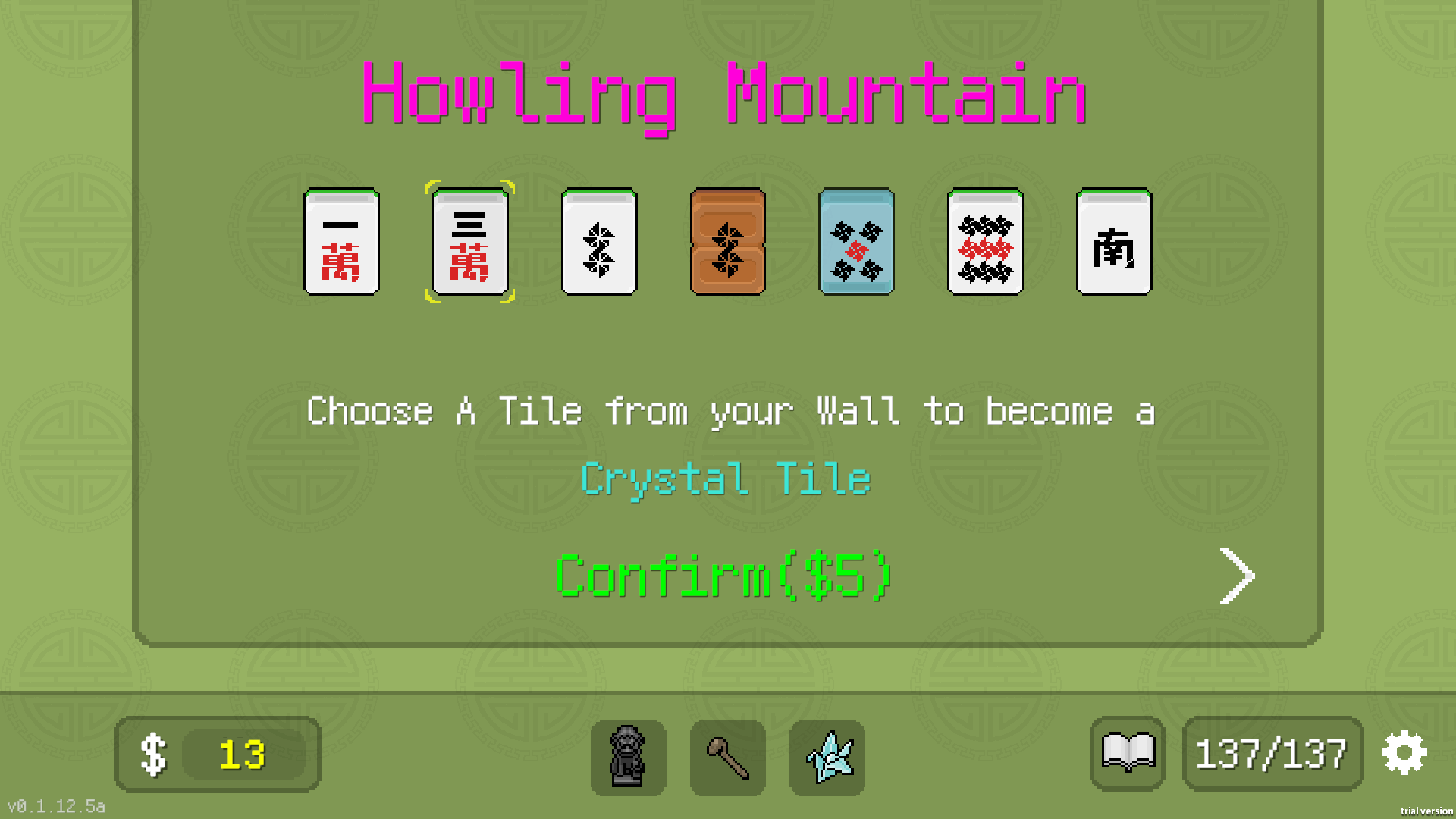
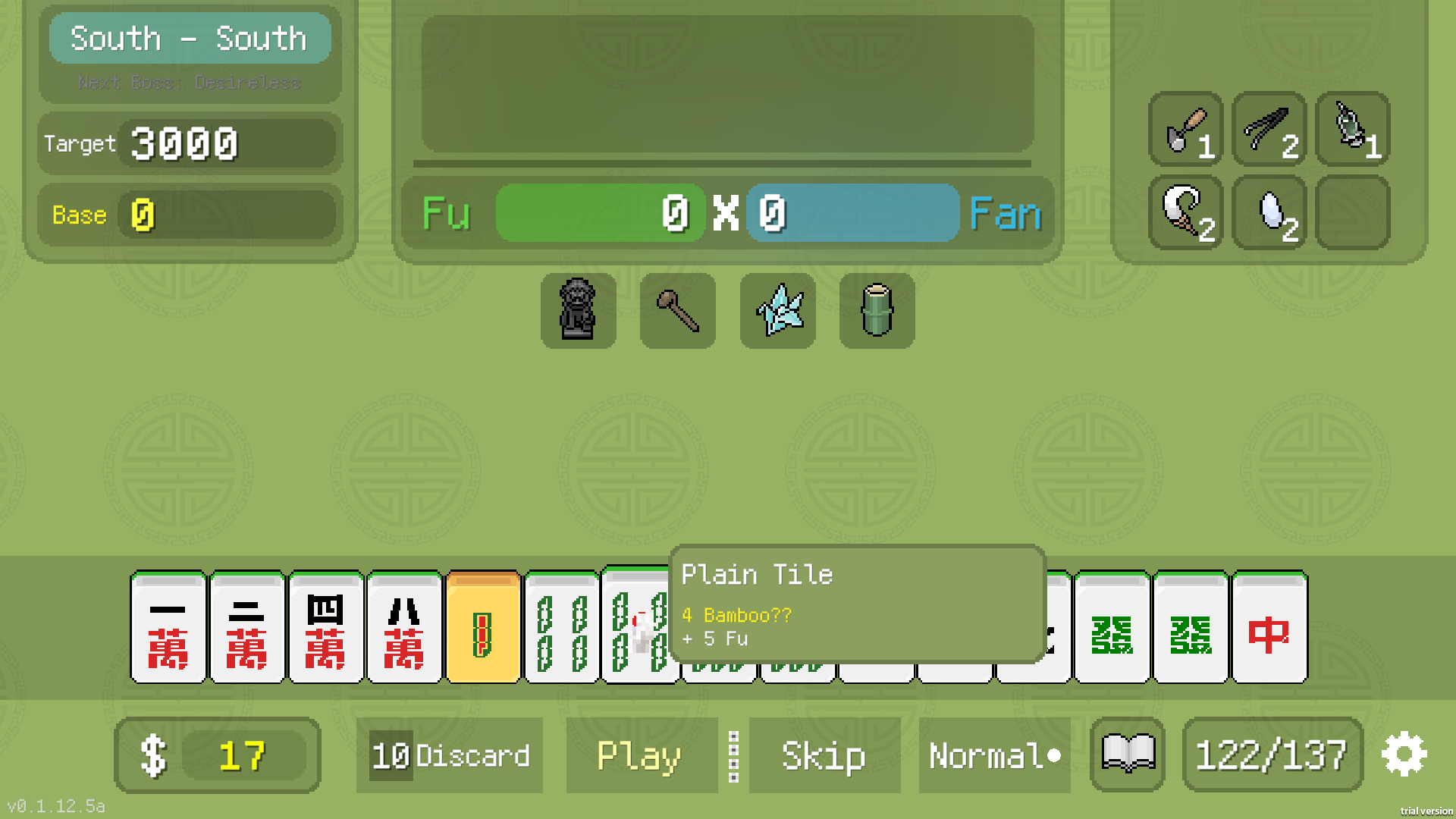
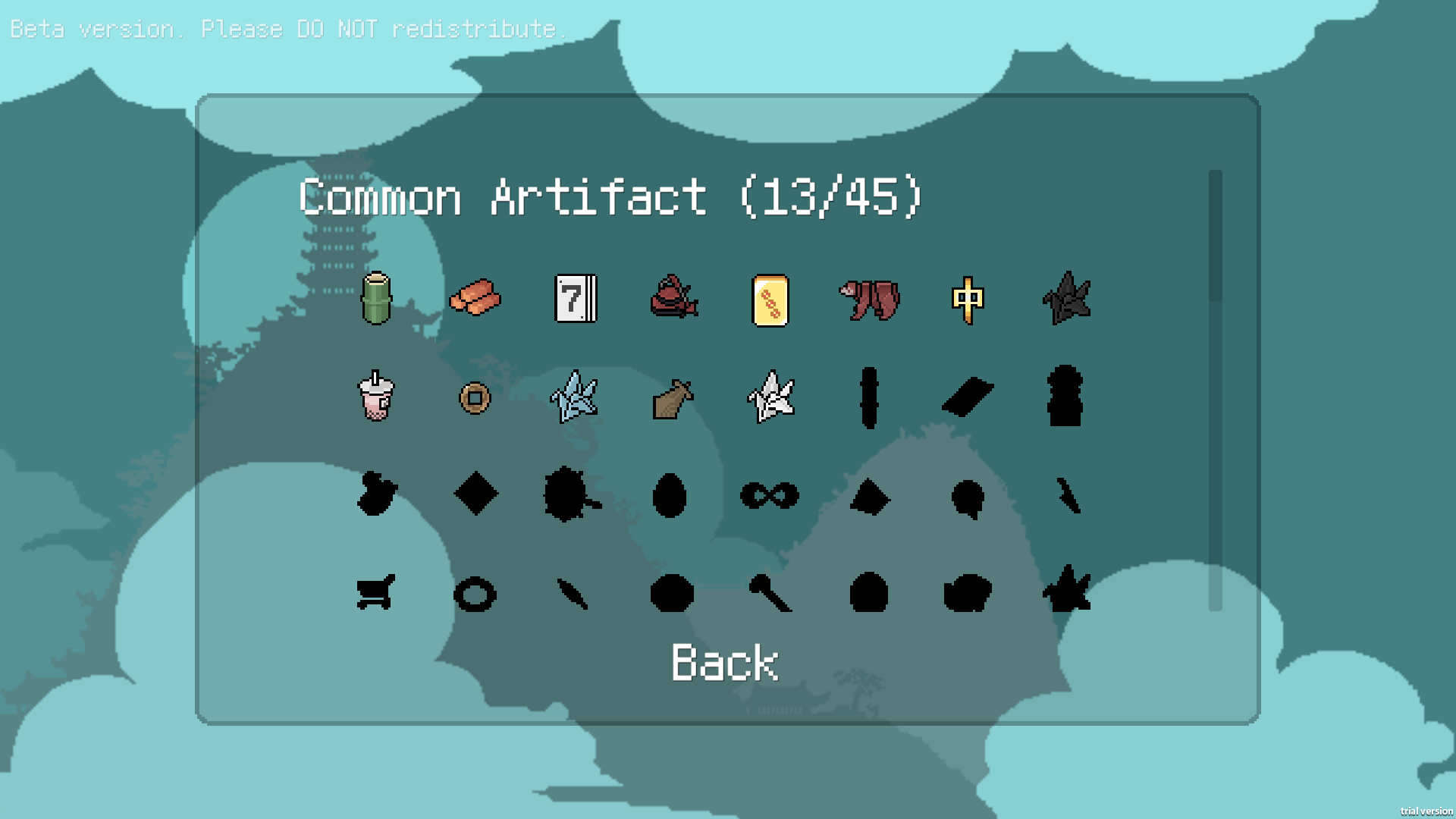
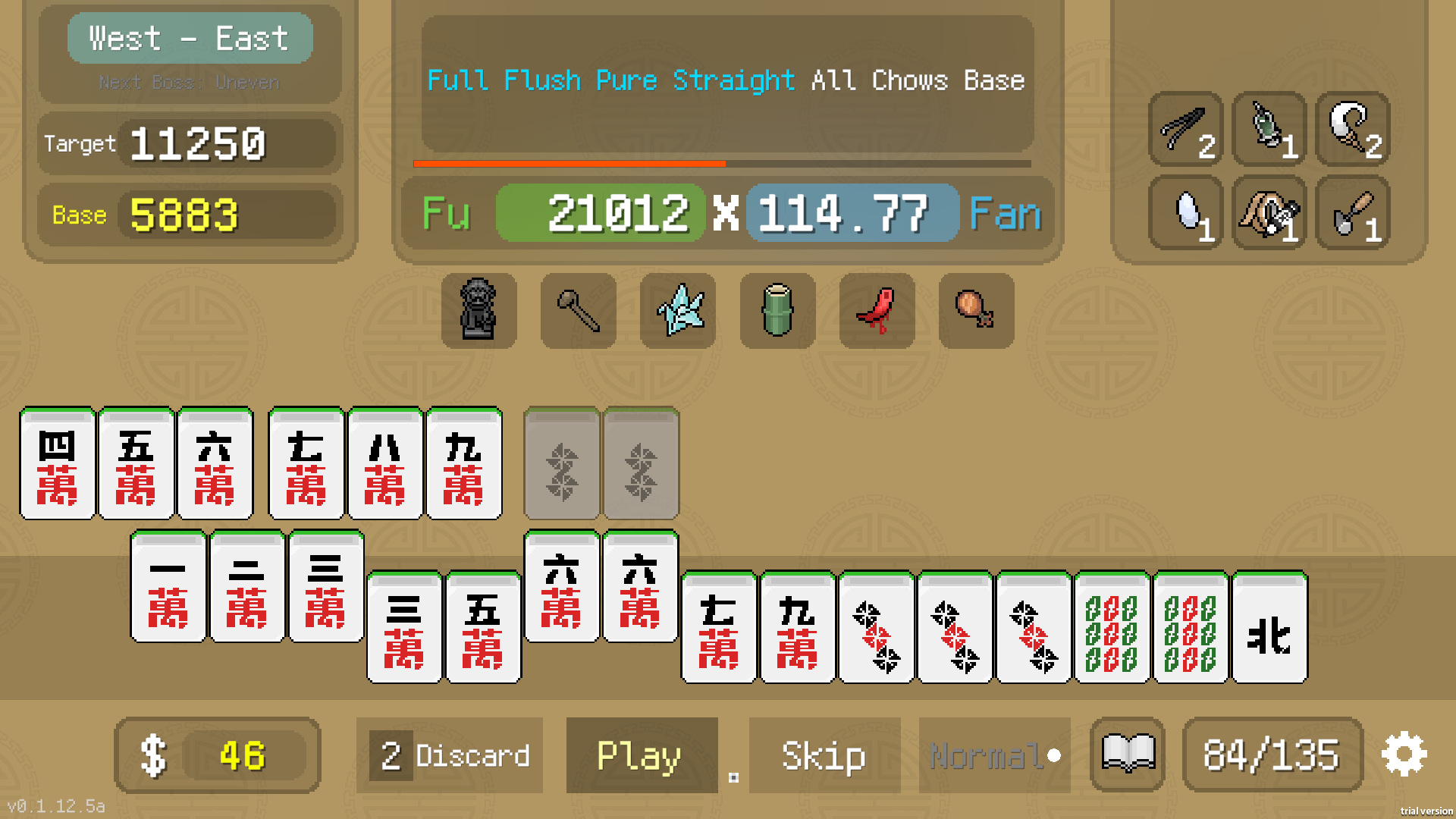
But in the same way Balatro isn’t really a poker game, Aotenjo isn’t really mahjong. It’s a celebration of the art of the cheat and manipulation, using all sorts of items and tricks to buff points, sneakily switch tiles, and pull an Ocean’s Eleven—or in this case, an Akagi—on the dealer for numbers so big they’ll make your head spin.
Well, you’ll be pulling off those numbers, but only if you can get past the steep learning curve. While the basic idea isn't all that dissimilar from poker—draw and discard tiles to make the highest scoring combination you can—mahjong is an infamously intimidating game. There’s a steep onboarding process, especially for English language audiences who won’t understand what half the characters on the tiles mean. One, two, and three are easy enough, but what’s up with four, five, and six? And you’re telling me this tile that looks like the Yankees logo means north? Aotenjo tries to explain what you need to know in a quick tutorial (and I appreciate how it encourages you to play around and enjoy the self-discovery process), but I worry that someone who hasn’t already played mahjong will find this game almost completely impenetrable.
That said, Aotenjo is both a fun game in its own right and a surprisingly effective mahjong learning tool. You're not facing another human and the system is designed to be cheated in a dozen ways; freed from these competitive constraints, you can focus entirely on thinking about hand construction and how to build and plan for the highest possible points, something that can be difficult to do in a real game when you’re starting out.
Keep up to date with the most important stories and the best deals, as picked by the PC Gamer team.
And maybe it’s just because I’ve never been much of a poker guy (I have been a mahjong guy) but I’ve found myself enjoying Aotenjo even more than its direct influence. While Balatro feels dense and carefully constructed, the scope of mahjong makes Aotenjo looser, more expansive, allowing for wider player expression while perfectly capturing the absurd highs and hilariously infuriating lows of traditional mahjong. I sat down with the demo planning to play an hour, only to watch my entire afternoon fly by as I explored different builds and mastered new patterns.
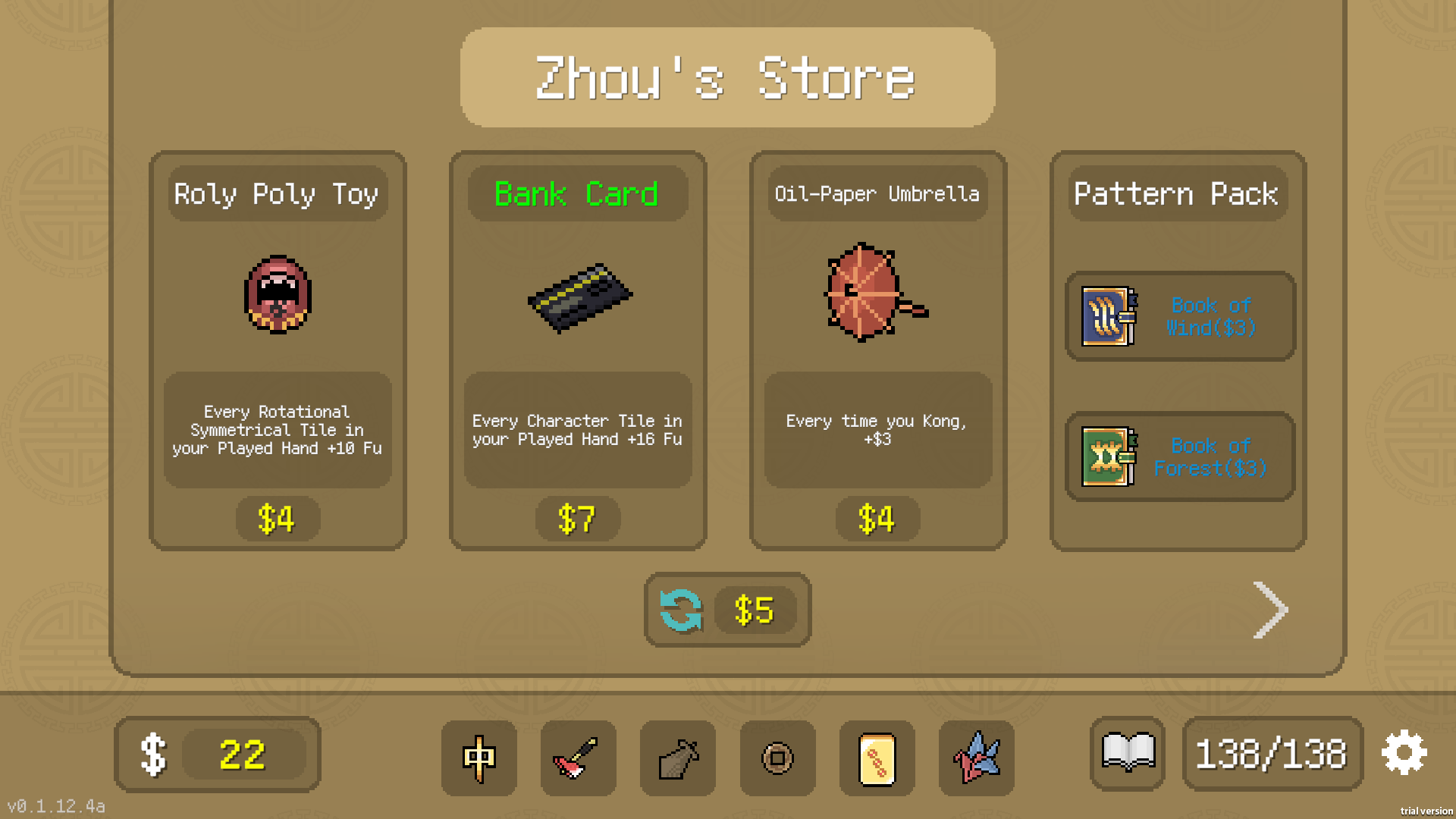
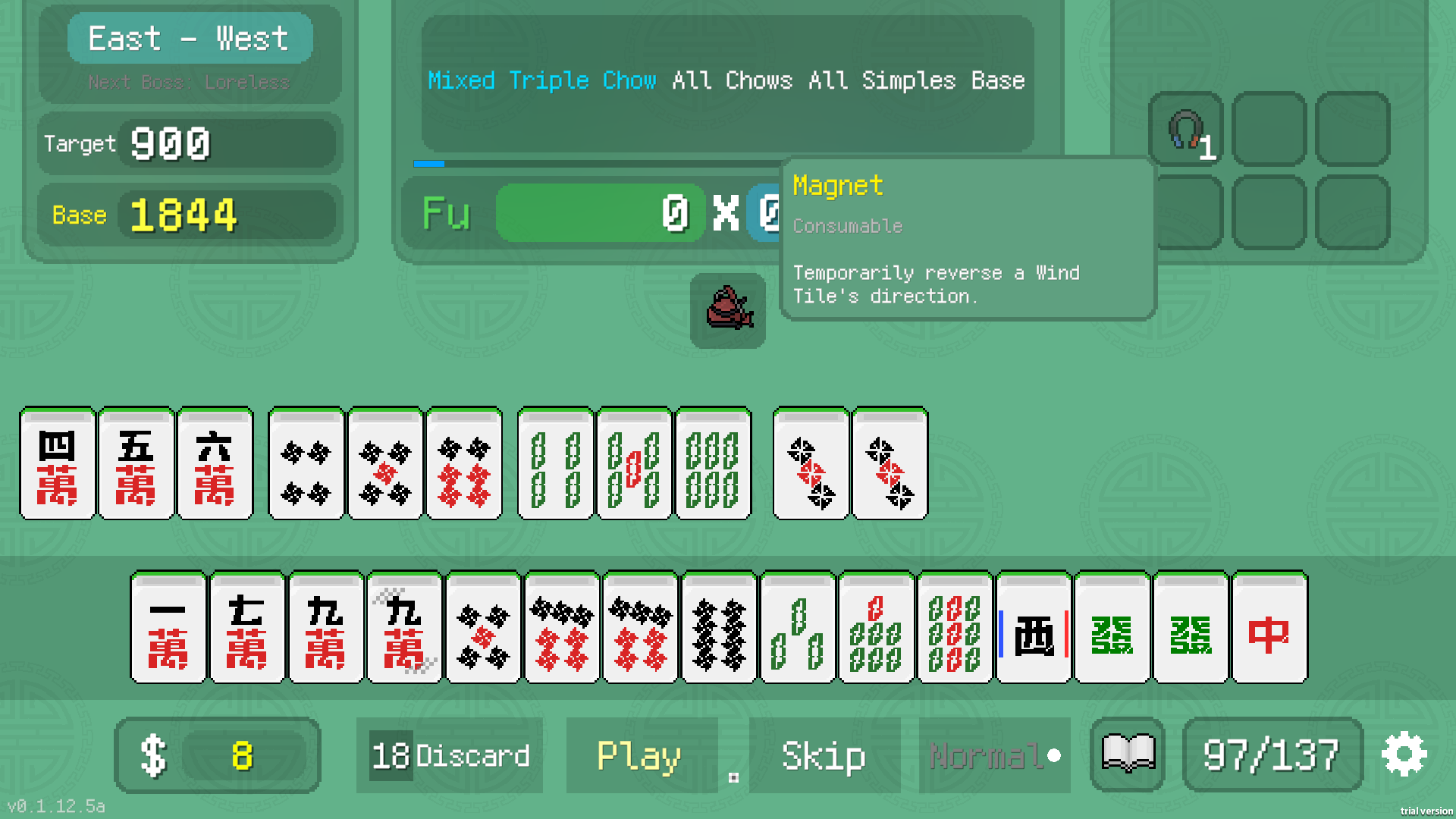
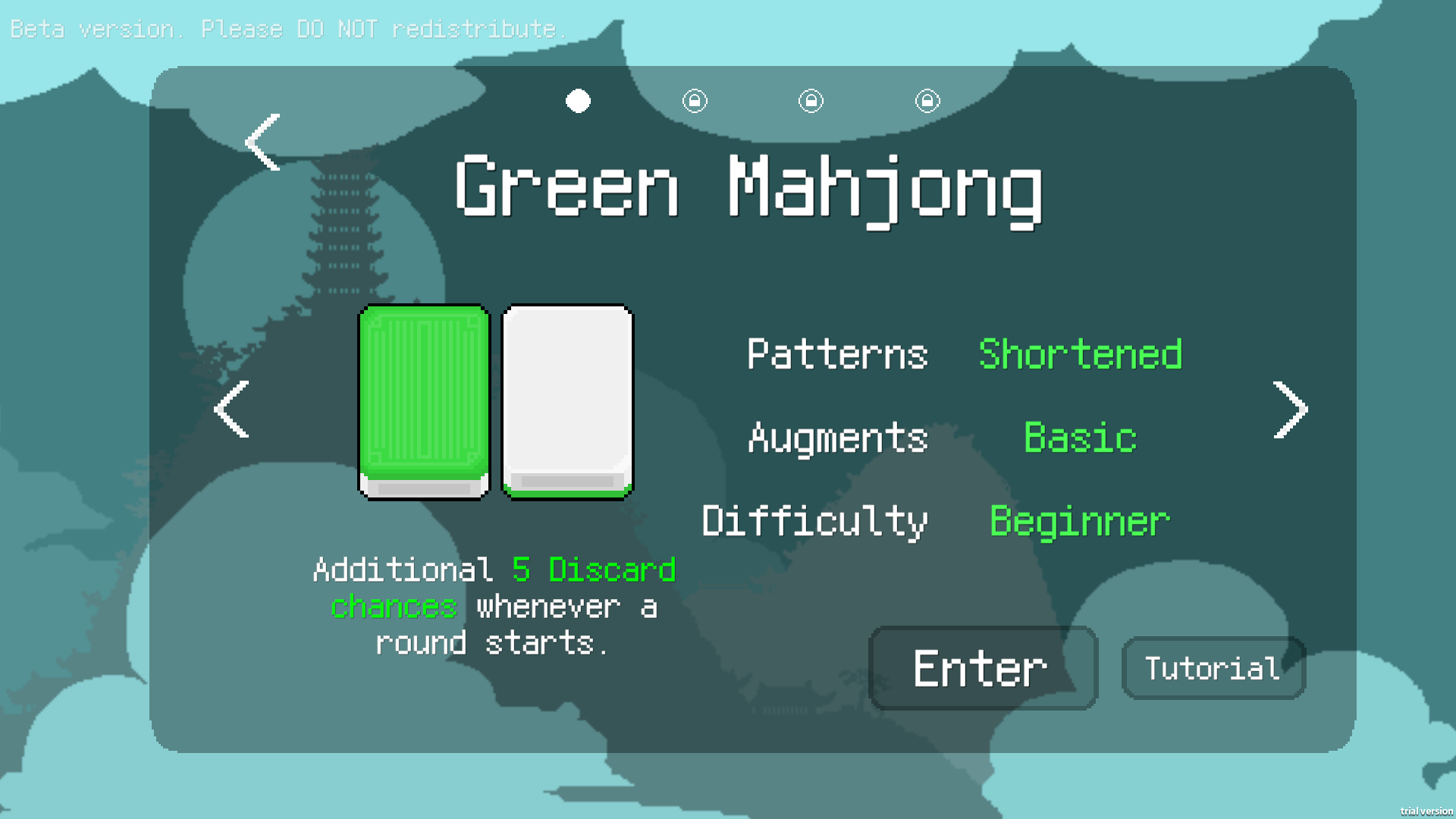
In one game I found an item that encouraged me to use every tile type as often as possible, leading me to explore patterns I normally don’t; in another I created obscene multipliers for every pung (three in a row); and even another where I spent all my earned money changing the colors of my tiles, living out the dream of having nothing but bonus point granting red tiles. Every round is a delightful blenent. God I wish I could cheat this mercilessly in real mahjong.
The one area where the tiles don’t quite line up is in presentation. Where Balatro spruces up its card counting with a woozy psychedelic edge, Aotenjo is visually spartan, providing pixel tiles over a gently moving wallpaper and little else. The art suggests how quickly this game came together. Boss battles betray their evocative names like Desireless, Heartless, and Undisturbed by amounting to nothing more than a name in the corner of the screen with a description of whatever gimmick they’ve got.
Not that it’s totally without charm: Many items you’ll run across are delightfully specific. Take my favorite, the grain of rice, which you can smush onto tiles to hide a dot, lowering its value by one. There’s a strong sense of humor rooted in a real love for both mahjong and the culture surrounding it on display in items like that, and I’d love to see Aotenjo lean into that love aesthetically, even if only a bit more.
For the kind person whose first reaction to the words "13 orphans" is to get hyped up instead of sad, Aotenjo is a must try. Based on the demo it's a wonderful shake-up of a classic and it looks like there’s a whole lot more to look forward to in the full game—most excitingly, more decks that apply different rulesets from around the world, and mod support. But if you look at the 144 tiles necessary for mahjong and feel overwhelming stress more than anything, maybe play a few rounds in the latest Like a Dragon to brush up on the rules first.
Baxter Burchill, a self-described "lazy son of a gun who writes for fun," is a hobbyist writer and English teacher living in Japan who loves helping others find great art nearly as much as he loves vomiting onto a page.


